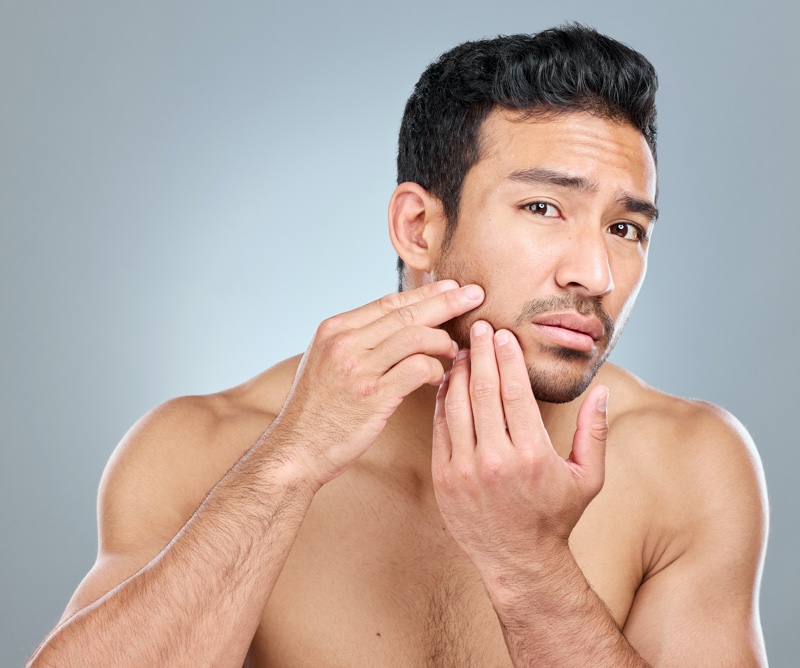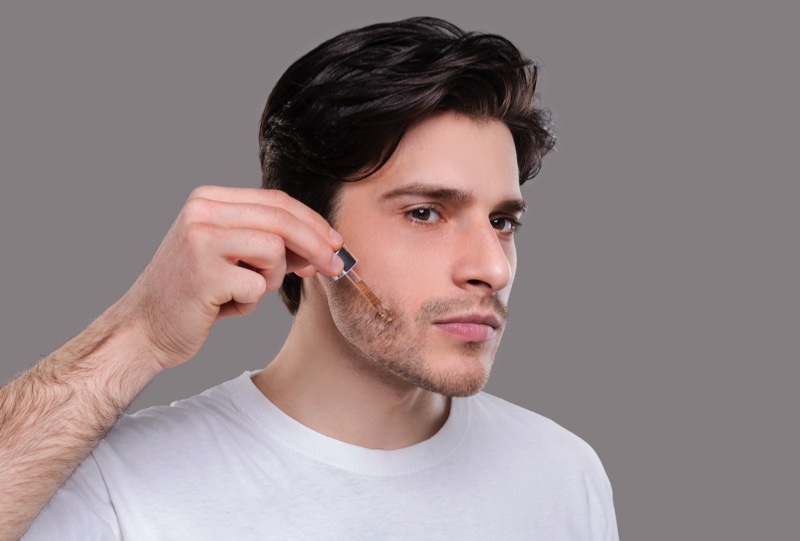
When it comes to skincare, one size does not fit all. The secret to unlocking the full potential of your skincare regimen lies in a fundamental understanding of your skin type. This knowledge is a pivotal factor that influences the effectiveness of every product you apply.
From the genetics that shape its foundational traits to the daily environmental elements it battles, your skin’s needs are as individual as your hair type or style.
Recognizing whether your skin is oily, dry, normal, combination, or sensitive guides you to the right products and helps you make informed decisions about your skincare practices.
Following our guide, keep in mind that understanding your skin type is the first step in a journey towards a skincare routine that fits your personal issues and needs, enhancing your natural charm and ensuring the health and vitality of your skin.
Let’s explore your skin’s secrets and transform how you think about your daily skincare ritual.
Skin Type Variations
Learning your skin type is the first step in creating a skincare routine tailored to your specific needs. By recognizing your skin’s unique characteristics, you can select products and practices that will enhance its radiance and address any concerns effectively, including how to improve skin texture.
Normal Skin: Maintaining Balance & Health

Normal skin represents the ideal balance in skincare, characterized by a well-regulated oil production that results in a smooth, clear complexion with minimal blemishes. If your skin consistently feels smooth, hydrated, and comfortable, you likely have this type of skin.
Normal Skin Tips: Caring for normal skin revolves around maintaining its natural balance. This can be achieved through a simple yet effective skincare routine. A gentle cleanser, a light moisturizer, and regular sunscreen application are key components.
These basics help preserve the skin’s inherent balance without overcomplicating the care process. Additionally, normal skin benefits from a balanced diet and staying well-hydrated, both of which contribute to its overall health and appearance.
Incorporating regular exfoliation into your routine can further enhance the skin’s natural glow, keeping it fresh and vibrant. The key to caring for normal skin is not overdoing it but rather supporting its natural state of harmony.
Oily Skin: Oil Control & Acne Prevention

Oily skin is characterized by increased sebum production, leading to a shiny complexion, enlarged pores, and a greater propensity for acne, blackheads, and whiteheads.
This is due to the combination of excess oil and dead skin cells clogging the pores. If your face consistently exhibits a persistent shine, particularly in the T-zone (forehead, nose, and chin area), and you are prone to breakouts, it’s likely you have oily skin.
Oily Skin Tips: The key to managing oily skin is balancing oil control with hydration. Start with a gentle, oil-free cleanser to effectively remove excess oil and impurities without stripping the skin. Follow up with a light, non-comedogenic moisturizer to hydrate the skin without adding to its oiliness.
Incorporating salicylic acid or benzoyl peroxide products can be particularly effective in preventing and treating acne. Additionally, using a clay mask once or twice a week can help absorb excess oil and maintain clear pores.
The focus should be on a routine that controls oil production while keeping the skin healthy and hydrated.
Dry Skin: Essential Hydration Strategies

Dry skin is characterized by a lack of necessary moisture, resulting in a texture that often feels tight, flaky, and dehydrated. This skin type can exhibit signs of itching, redness, and more pronounced fine lines and wrinkles. If your skin feels parched and rough, it’s likely that you have dry skin.
Dry Skin Tips: The cornerstone of caring for dry skin is to focus on hydration and nourishment. Start with a hydrating cleanser that cleans without stripping the skin of its natural oils.
Follow this with a rich moisturizer containing ingredients like hyaluronic acid or glycerin to provide deep hydration and help lock in moisture.
To further combat dryness, consider using a humidifier in dry environments and applying a nourishing overnight mask to replenish moisture levels. It’s also important to avoid hot showers and harsh exfoliants, as these can exacerbate dryness.
The goal is to provide your skin with the hydration and care it needs to maintain a smooth, supple texture.
Combination Skin: Balance Between Oily & Dry Areas

Combination skin is a unique blend of different skin types, often characterized by an oily T-zone (forehead, nose, and chin) and drier cheeks. This skin type requires a balanced skincare approach that addresses both the oiliness and dryness with targeted treatments.
Combination Skin Tips: If you’re experiencing a shiny forehead and nose but encounter dryness on your cheeks, it’s a clear indication of combination skin.
The key to managing this skin type is using products that normalize the skin. This involves providing moisture where it’s needed while controlling excess oil in other areas.
A gentle cleanser that effectively cleanses without over-drying is essential for combination skin. Follow this with a light, hydrating moisturizer suitable for the entire face. In the T-zone, consider applying a more mattifying product to manage oiliness.
Additionally, exfoliating with a mild product can help balance dry patches and keep oily areas clear. The goal is to find the right balance that caters to your skin’s diverse needs, ensuring each area receives the appropriate care.
Sensitive Skin: Caring for a Reactive Complexion

Sensitive skin is known for its increased tendency to react to certain ingredients or environmental factors, often manifesting as redness, itching, inflammation, burning, or dry patches. If your skin frequently reacts negatively to new cosmetics or environmental changes, it’s a sign of sensitivity.
Sensitive Skin Tips: Caring for sensitive skin requires a gentle approach. Opt for products specifically designed for sensitive skin, avoiding fragrances, alcohol, and harsh chemicals that can exacerbate irritation. Incorporate a soothing cleanser and a hypoallergenic moisturizer into your routine, as these are essential for maintaining skin health.
When introducing new products, do so gradually and always perform a patch test to minimize the risk of adverse reactions. It’s also crucial to shield sensitive skin from extreme temperatures and harsh environmental elements, as these can trigger irritation.
The overarching goal in managing sensitive skin is to use soothing, hypoallergenic formulations that minimize irritation and strengthen the skin’s natural barrier, ensuring it remains resilient and healthy.
Selecting the Right Skincare Products

Choosing the right skincare products is crucial in complementing your skin type and enhancing your skincare routine. This selection process involves understanding the best ingredients and formulations for your specific skin concerns.
Here’s a guide to help you navigate the vast array of products and select the ones that will benefit your skin the most.
Cleansers: Matching with Skin Types

The cleanser is the foundation of any skincare routine. It’s essential to choose one that aligns with your skin type:
Normal Skin: A gentle, balanced cleanser that doesn’t strip the skin’s natural oils.
Oily Skin: Gel or foam cleansers that remove excess oil without over-drying.
Dry Skin: Cream or lotion-based cleansers that provide extra hydration.
Combination Skin: A balanced cleanser that addresses both oiliness and dry areas, often a gentle foam or gel.
Sensitive Skin: Fragrance-free, gentle cleansers that avoid causing irritation.
Moisturizers: Nourishing & Hydrating the Skin

Moisturizers help maintain the skin’s hydration levels and protect its natural barrier:
Normal Skin: Lightweight, hydrating moisturizers that maintain skin balance.
Oily Skin: Oil-free, non-comedogenic moisturizers that hydrate without clogging pores.
Dry Skin: Rich, emollient creams with ingredients like hyaluronic acid or ceramides.
Combination Skin: Lightweight, non-greasy moisturizers that provide balanced hydration.
Sensitive Skin: Hypoallergenic and soothing moisturizers that calm and protect the skin.
Sun Protection: A Must for All Skin

Regardless of your skin type, sun protection is non-negotiable, whether summer or winter. Daily use of a broad-spectrum sunscreen helps prevent premature aging and protects against harmful Ultraviolet (UV) rays.
Opt for a sunscreen with an SPF of at least 30, as the American Academy of Dermatology suggests, and consider a formula that suits your skin. For instance, mineral sunscreens for people with sensitive skin or mattifying formulas for oily skin.
Treatment Products: Targeted Solutions

Depending on your skin concerns, you may consider the addition of treatment products such as serums, spot treatments, or exfoliants. For example, serums with antioxidants like vitamin C are great for brightening, while retinoids can be beneficial for acne-prone and aging skin.
Always select treatments based on your specific skin concerns and introduce them gradually into your routine. Consult with a dermatologist before adding any intense treatments to your medicine cabinet.
Celebrating Your Unique Skin Journey

Celebrating your individual skin type is key to embracing your uniqueness. Whether you have oily, dry, normal, combination, or sensitive skin, understanding and properly caring for it is essential. Skincare is less about striving for perfection and more about maintaining your skin’s natural health and glow.
As you navigate through different stages of life, your skin’s requirements will also evolve. It’s important to remain flexible and willing to adjust your skincare regimen.
Remember, the healthiest skin is one that is nurtured with knowledge and affection. By cherishing your skin, you allow it to showcase its inherent beauty. Here’s to a journey of learning, caring, and celebrating the distinct beauty that belongs to each of us.





